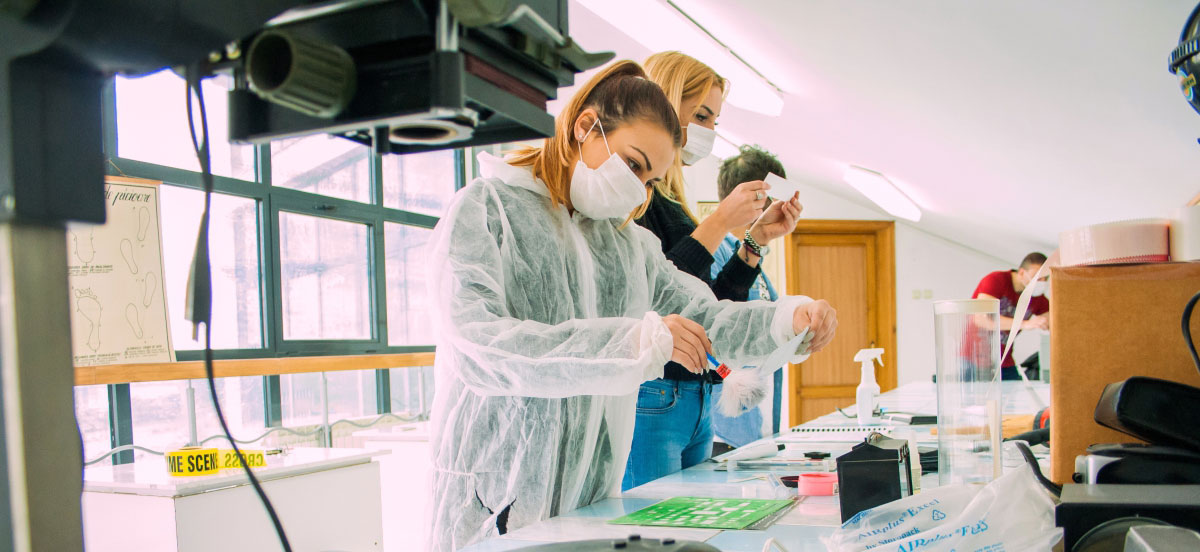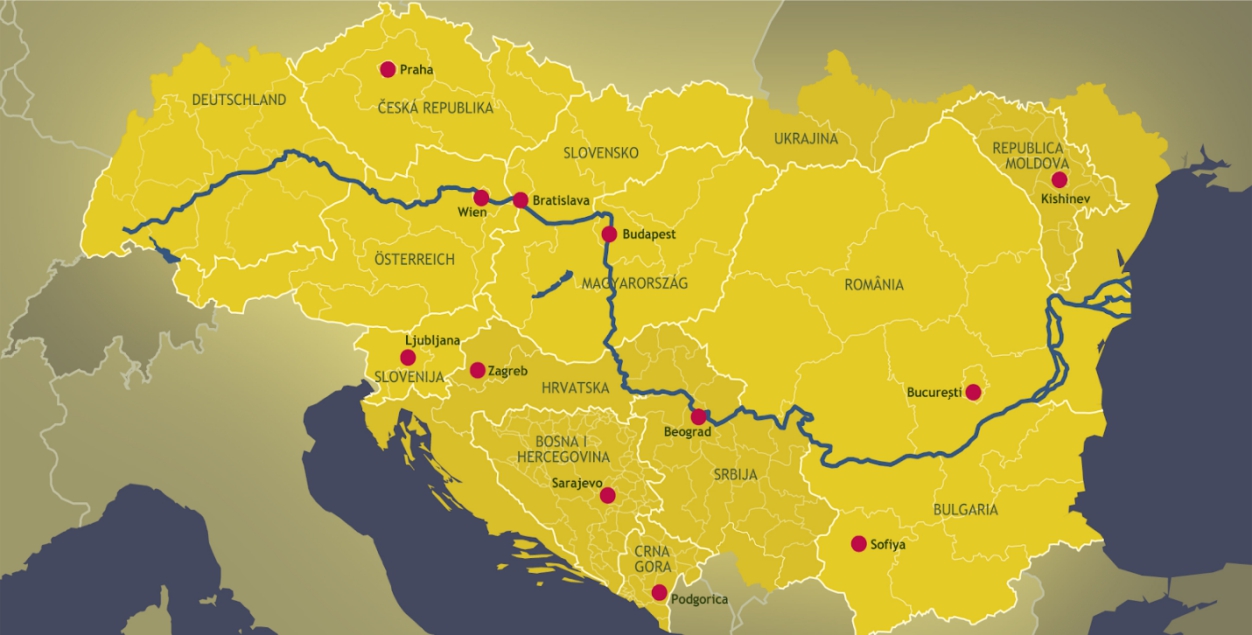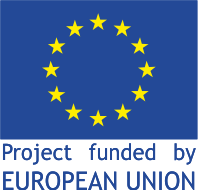
Common borders. Common solutions.

Danubius University of Galati is a top-ranked private university offering bachelor's and master's degrees. It was founded in 1992, and over the last two decades has become firmly established as one of Romania's leading academic institutions.
Danubius University is a modern, dynamic, and entrepreneurial European University, one perfectly adapted to our contemporary society.
Danubius University promotes knowledge and innovation by offering a unique experience of learning, research, and development, regardless of age, experience, knowledge level or type of training of its students and clients.
Danubius University shall be acknowledged in the area between the Black Sea and Baltic Sea as an international university of excellence, an open and stimulating environment for personal development and entrepreneurship, as well as the constant exchange of ideas and values (www.univ-danubius.ro)
Danubius University offers to its students 25-degree programs, through the Faculty of Law, Faculty of Applied Sciences, Faculty of Economics, Faculty of Communication and International Relations: 8 undergraduate study programs, 12 master study programs, 5 post-secondary college programs, and numerous life-long learning (www.dibs.ro).
In Danubius University, the research is the link between idea and progress. It is the typical human activity that brings a plus of performance and comfort in the civilized society. It is the superior representation of curiosity and of testing it.
In the modern world, the scientific research activity is essential to communities who want to permanently overcome their condition. The progress is the essence of human civilization and the scientific research assures this progress. Increasingly, however, the focus is on keeping conditions and opportunities for progress from generation to generation (sustainable development). So still the scientific research is the one that needs to find the measure of all things and to systematize the development priorities.
Also through scientific progress and the accumulation of knowledge, the innovative communities find the sustainable path and they discover how to make the compromise between the progress at any cost and the sustainable and durable progress.
The paradigm of the modern world has changed. We have all passed from “think big” to “think green”. The paradigm of progress is continuously changing and it reformulates itself every day. Under these circumstances the shift from speed by limitless effort to speed by calculating the minimum effort is a goal that scientists worldwide are working on continuously.

Danubius University has many structures with scientific research role:
The Center for Research on Socio-Economic Dynamics in Sustainable Development (DiSEDD): conducts multi-disciplinary, interdisciplinary research, development and innovation in the economic, social and legal fields in the context of sustainable development.
Danubian Studies and Research Center (CSCD), research center that aims to become a pole of promotion of scientific and cultural values in the Danube area, mobilizing and integrating political and administrative efforts into regional development and innovation, as well as cooperation with nations and communities along the Danube.
The Center for Excellence in Organizational Development (CREDO) provides training, counseling, counseling through highly qualified staff for the business environment. It brings together both students, teachers and business people, thus ensuring interaction with the economic environment and developing a policy of permanent adaptation to requirements on both sides.
The European Projects Compartment helps students to develop transversal skills, facilitate access to the labor market, develop the material base and provide the resources needed for a modern, open, excellence education.
Experience of Danubius University in the projects realisation:
"Digital Guidance: Personalized Consultancy Software for Placement on the Labor Market and Career Development"- DIGI-GUIDANCE
Financed by Lifelong Learning Programme – Leonardo da Vinci, Multilateral project – Transfer of Innovation (TOI);
Implemented by Danubius University in partenership with Cascaid Ltd United Kingdom, Centro Studi Pluriversum ltalia, DEP Institut SL Spain, Universita' Degli Studi Di Camerino Italy, County Employment Agency Bistrita-Nasaud, National Authority for Qualifications, Romanian-American University in Bucharest , Lucian Blaga University of Sibiu, Satean Foundation Braila;
Was developed between: 01.11.2013 – 31.10.2015;
The overall objective of the project was to improve the quality of professional and educational guidance services provided by Romanian partners from different geographic contexts (4 regions of Romania) through the transfer of the ICAS model provided by CASCAiD, UK.
International Careers Advice Software (ICAS) is a non-existent concept at this time in the Romanian market, but has been successfully experienced in four European Union countries, where the platform is used by labor and education ministries at system level. The platform uses occupational information (according to the COR) containing a detailed database of 800 professions (internationally) to guide the end-user in accordance with the real competencies identified through customized analysis toolkits. Each occupational profile includes: labor market experience, personal skills, employment and training opportunities, links to information sources. The most relevant occupations are supported by multimedia information.
"Developing the European Qualifications Management System and Empowering Informal Competences"- UNI4-4
Financed by Sectoral Operational Program Human Resources Development 2007-2013.
Implemented by Danubius University of Galati in partnership with Romanian - American University - Bucharest, George Bacovia University - Bacau, Western University - Timisoara, Universita' degli Studi di Camerino - Italy, Toulouse University - France, Dortmund University - Germany, Chania Institute - Greece, S.C. CISPRO S.R.L and SIDA S.R.L. Italy;
Was developed between: 01.12.2010-30.11.2013
The European Projects Compartment helps students to develop transversal skills, facilitate access to the labor market, develop the material base and provide the resources needed for a modern, open, excellence education.
Overall Objective: To increase the efficiency and effectiveness of studio programs by restructuring and improving education and training systems (in line with the demand for pro-gaming profiles on the labor market), in the context of the establishment of a European university consortium for the exploitation of tertiary education programs.
Project activities: conferences, workshops, training seminars for university operators, especially those involved in personalized assistance processes for students, cross-curricular development courses, organizing a wide-ranging event, career day, and editing manuals dedicated to information students about career, but also the building of the Business Games Platform are just a part of the activities and the results from the implementation of this project.
“Social Innovation: Driving Force of Social Change (SI-Drive)”
The SI-DRIVE project is a research project implemented in the 7th EU Framework's sub-programme “Socio-economic sciences and the humanities” (SSH). The proposal addressed the call for Theme SSH.2013.3.2-1: “Social Innovation – empowering people, changing societies?”. Its main focus is an extension of knowledge about social innovation (SI) in three major directions:
- Integrating theories and research methodologies to advance understanding of SI leading to a comprehensive new paradigm of innovation.
- Undertaking European and global mapping of SI, thereby addressing different social, economic, cultural, historical and religious contexts in eight major world regions.
- Ensuring relevance for policy makers and practitioners through in-depth analyses and case studies in seven policy fields, with cross European and world region comparisons, foresight and policy round tables.
"Managing the correlation of the education system with the labor market”
Implemented by Danubius University in partenership with The Ministry of National Education, the National Center for Training in Statistics, the National Institute for Scientific Research in the field of Labor and Social Protection and ÖSBConsulting GmbH in Austria.
Project objectives: Improvement of the adaptation of the higher education system to the needs of the permanent labor market through methods such as development, testing / piloting and implementation of new tools, procedures, methodologies and mechanisms to increase the capacity of this system to become aware of its present and future status, to anticipate the evolution of labor market demand at sectoral, local and multi-regional level.








